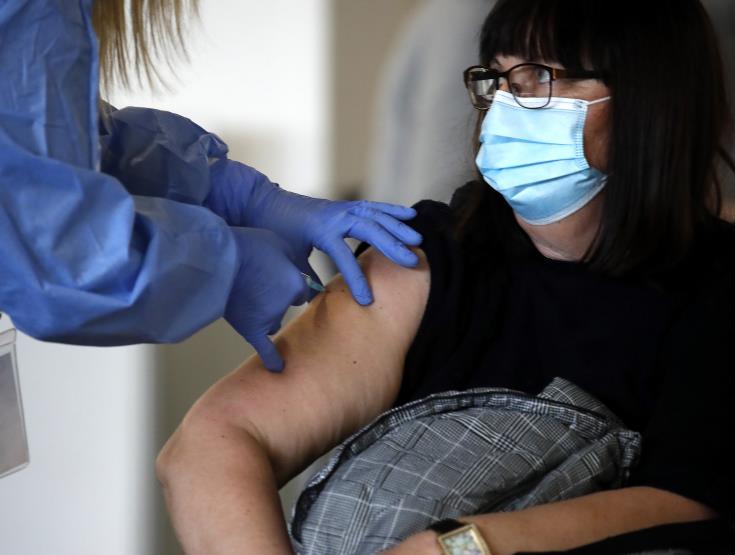After detecting four people infected with the Indian COVID-19 variant and two with the South African strain, health authorities seek to speed up vaccinations to create a wall of protection.
Authorities are now throwing themselves into accelerating the country’s vaccination rollout by increasing capacity with the help of the private health sector.
Both new variants have proven to be more aggressive and dangerous, threatening to derail Cyprus’ success in bringing the virus under control following a surge leading to a two-week national lockdown in April.
Cases infected by the Indian and South African variants were detected among people who arrived from grey category countries, which means they were quarantined on arrival.
In a move to accelerate the country’s COVID-19 mass vaccination rollout, health authorities have decided to add two more jab centres to the seven existing ones.
Nicosia and Limassol General Hospitals are to host the new centres, increasing the capacity of daily vaccinations.
Head of the pharmaceutical services, Dr Olga Kalakouta, said authorities plan to recruit paediatricians and dentists to carry out vaccinations at their practices.
In comments to CyBC radio, Kalakouta said the opening hours of vaccination centres are being extended, including operating on Sundays.
Some 250 General Practitioners have joined the vaccination rollout by offering the AstraZeneca jab to anybody over 20.
The Vaccination Portal is targeting age groups to improve their vaccination coverage.
The portal is currently catering to people aged 61 to 65 and will be focussing on people under 50 from Friday.
The State Health Services Organisation (OKYPY) requested to shield people aged 40 to 60, as admissions to hospitals are mostly from this age group.
“Given that the new variants are more aggressive and have a higher transmissibility, the only way proposed by the scientific community to prevent their introduction and stop their aggressive spread is a high rate of vaccinations within the population,” Health Minister Constantinos Ioannou tweeted.
“Despite measures taken at points of entry and the conditions set for arrival based on countries, there is always a chance that mutations will be introduced in the community,” he added.
Dr Maria Koliou, a government advisor on COVID-19, said the Indian variant was “more contagious and appeared to cause more serious illness.”
She noted that Britain is worried about the prevalence of the Indian variant.
“This is because the variant is spreading very fast and is likely to prevail; a higher rate of vaccination coverage is needed to protect the population.
“Instead of 65% to 70% coverage believed to be sufficient (for herd immunity), an 80% to 85% coverage will be needed, according to British scientists.”
Koliou did not rule out the possibility that a booster dose of the vaccine might be needed, especially for older people.
Virologist and government advisor Dr Peter Karayiannis said the evidence suggests that antibodies produced by vaccines can effectively deal with variants.
Cyprus has inoculated over 45% of the adult population with one vaccine shot, and over 16% are fully vaccinated.










